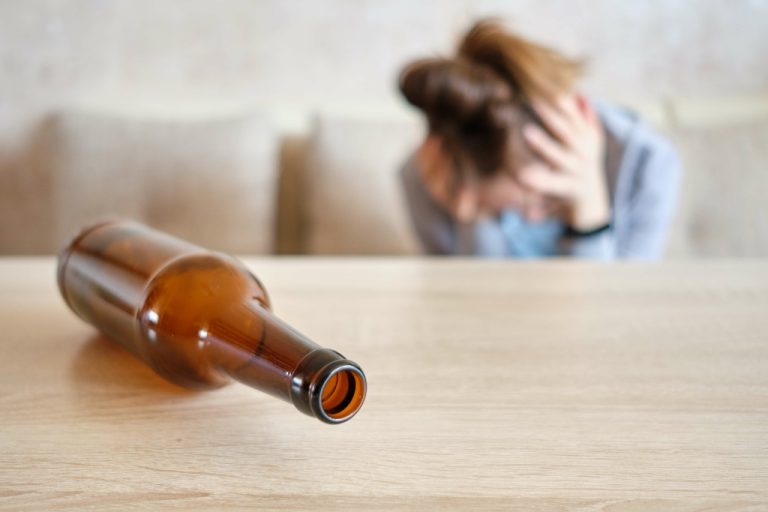“There are a lot of reasons for this,” explains HEAL-funded clinical psychologist Aaron Hogue, Ph.D., of the New York City-based Partnership to End Addiction. As part of the Consortium on Addiction Recovery Science, two HEAL-funded research teams are laying the groundwork for current and future science-based community https://www.smileyguydesigns.com/2011/12/index.html participation in recovery research. We do not receive any commission or fee that is dependent upon which treatment provider a caller chooses. While naloxone has been on the market for years, a nasal spray (Narcan, Kloxxado) and an injectable form are now available, though they can be very expensive.
Who Should Utilize Long-Term Inpatient Rehab?
CBT helps clients correct problematic behaviors that led to their substance abuse by addressing the thought patterns underlying the behavior. By anticipating triggers for relapse that may arise during recovery, clients can devise strategies to address these triggers, helping them to avoid a return to drug use. One of the major strengths of CBT is that it has been found to be effective even after clients leave treatment, thus teaching them retainable skills to assist in long-term recovery. A “steps down” approach is typically recommended following a long-term residential addiction treatment program. This may include continuing treatment at an intensive outpatient program, alongside 12-step support groups and continued therapy.
Clinical trials
However, transfers involve some risk, as patients may choose to leave treatment rather than initiate and engage in treatment elsewhere. The use of health information technologies and patient navigators may help facilitate effective transfers by bridging care between settings. Laboratory testing can detect some of the acute issues and complications of stimulant intoxication and withdrawal. No research was identified on ordering routine or as-needed laboratory testing in patients presenting with stimulant intoxication or withdrawal.
The Nitty-Gritty Skills of Recovery

Titles, abstracts, and full texts were reviewed by two independent senior members of the research team for inclusion in the literature review. It’s important to find the right addiction counselor that offers therapies that best support your needs. Don’t be afraid to ask questions about the counselor’s experience and the therapies they use. Addiction counselors are professionals with specialized training in addressing addiction and facilitating long-term recovery. Eat food that makes you feel good and you’ll be more likely to make other choices that help you feel good in all aspects of your life. Distraction can also help interrupt craving-induced thoughts of using, which can gather momentum.
Treatment of Stimulant Use Disorder Recommendations
The testimony of these institutions, all dedicated to helping addicts recover from drug and alcohol abuse, clearly points to a long-term residential program. Even after you’ve completed initial treatment, ongoing treatment and support can help prevent a relapse. Follow-up care can include periodic appointments with your counselor, continuing in a self-help program or attending a regular group session. Statistics show that addiction is like other chronic diseases when it comes to relapse. Like treatment for other chronic diseases such as heart disease or asthma, addiction treatment is not a cure, but a way of managing the condition. Treatment enables people to counteract addiction’s disruptive effects on their brain and behavior and regain control of their lives.
In the event of sodium bicarbonate shortages, 3% hypertonic saline has been used as a sodium replacement, but it does not correct metabolic acidosis. Despite the relative lack of evidence on adolescent- and young adult-specific treatment for StUD, the CGC concurred on a number of interventions and other strategies that are reasonable based on their effectiveness in adolescents http://math4you.ru/page/2.html and young adults with SUDs in general and/or their effectiveness for adults with StUD. When prescribing stimulant medications, clinicians should monitor for adverse effects, including secondary hypertension and other cardiac outcomes. Preexisting hypertension, cardiovascular disease, or psychosis should prompt greater caution in using psychostimulants to treat ADHD in StUD.
- The results of the literature review inform estimates of the size of benefits and harms and the certainty of the evidence of effects.
- Arranging for a parent, guardian, or other trusted adult to directly observe adolescent patients’ medication administration is recommended to reduce the likelihood of nonmedical use.
- Clinicians should also be aware of which substances are present in the local market and consider that in testing; for example, testing for fentanyl due to frequent presence in the stimulant drug supply.
- The management of agitation and psychosis related to stimulant intoxication should start with behavioral management strategies.
There are many types of 12-step groups that assist people with everything from heroin addiction to eating disorders to gambling. The people in the group have grappled with and overcome the same issues you or your loved one is dealing with. Recovery stories are important because people need choices that work for them, he urges. A faith-based approach in conjunction with medication may resonate with one person, whereas someone else may prefer behavioral therapy and a different type of medication for opioid use disorder (at least three are available and effective).
Long-term residential rehab refers to addiction treatment facilities where patients live on-site and receive 24-hour therapeutic and medical support. Whereas some inpatient rehab programs are housed within a hospital, long-term drug treatment programs usually have their own facility that’s dedicated to alcohol or drug rehab. Cognitive behavioral therapy (CBT) is a type of counseling that helps a person learn to recognize the specific situations that cause addictive behaviors to occur, so the http://www.danteandluigis.com/sauces person can then practice strategies to avoid those triggers and behaviors. CBT is offered in most residential treatment programs and is effective for aiding in the recovery from substance use disorders. Inpatient treatment allows the patient to stay in a 100% sober treatment facility for the duration of the treatment program. For those with co-occurring mental disorders, dual diagnosis inpatient programs will provide care for the individual’s addiction recovery and psychological needs.
Substance misuse treatment programs vary but are often divided into “stages,” which may include medically assisted detoxification, rehabilitation therapy, and aftercare. Though treatment lengths vary, inpatient or residential treatment centers may be able to accommodate patients for longer periods of time than outpatient rehab facilities. The Recovery Village aims to improve the quality of life for people struggling with substance use or mental health disorder with fact-based content about the nature of behavioral health conditions, treatment options and their related outcomes. We publish material that is researched, cited, edited and reviewed by licensed medical professionals. The information we provide is not intended to be a substitute for professional medical advice, diagnosis or treatment.



